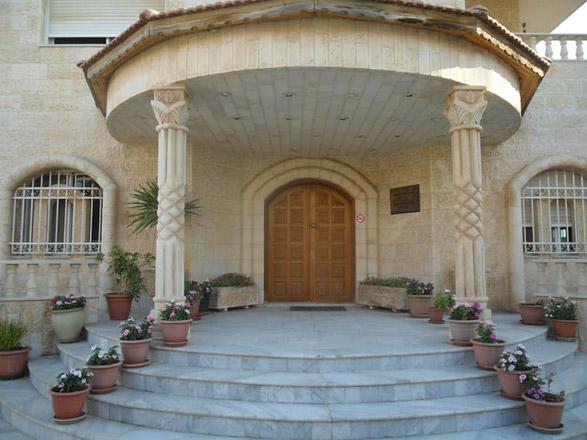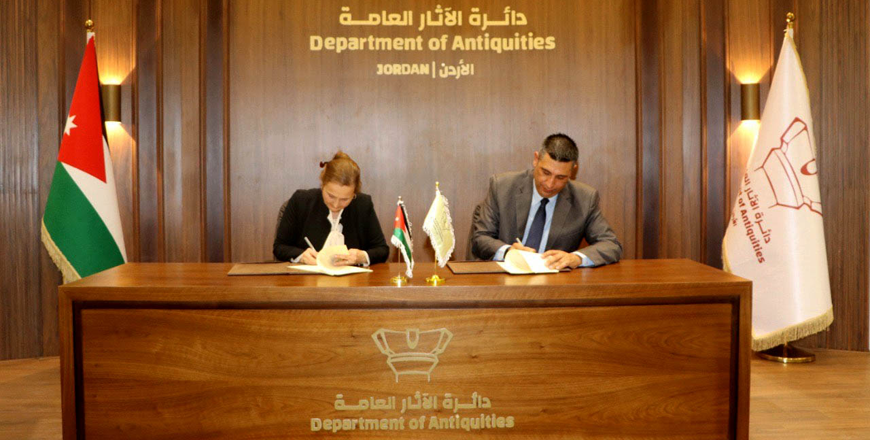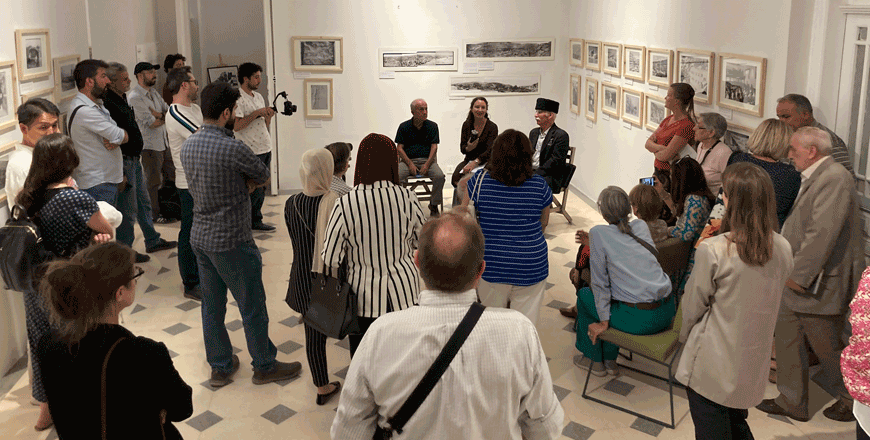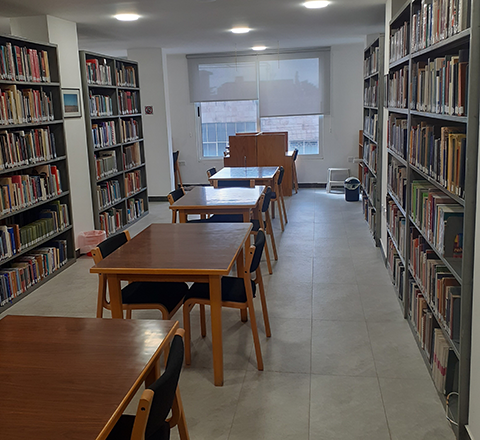You are here
British Institute sets bar high for research work in Jordan
By Saeb Rawashdeh - May 22,2017 - Last updated at May 22,2017

The British Institute in Amman (Photo courtesy of CBRL)
AMMAN — The Council for British Research in the Levant (CBRL), also known as The British Institute in Amman, inspires and supports high-quality research in the fields of humanities and social sciences in the countries of the Levant, according to its director.
Operating under the patronage of HRH Prince Hassan, the founder of many academic institutions in the Kingdom and himself a scholar, the institute was founded in 1975 by late British archaeologist Crystal M Bennett. In 2009, the official ties between the CBRL British Institute in Amman and the Royal Scientific Society (RSS), established by Prince Hassan, were formalised by his daughter HRH Princess Sumaya, the president of the RSS.
The cooperation between the two institutions aims to promote academic, scientific and technological activities related to education and training in Jordan.
“I see my main achievements as raising the profile of the institute, streamlining how the institute functions and showcasing the range of scholarship we support and do,” said Carol Palmer, the director of CBRL The British Institute in Amman.
“We have regular public lectures and, currently, we have a collaboration with the French research institute of the Near East — Institut français du Proche-Orient [Ifpo] — on the contemporary and modern Levant,” she noted.
In that regard, the research centre has a reference library (non-lending) with around 12,000 books, maps, articles, reports, PhD theses and periodicals on archaeology, anthropology, history and international relations, with specialist sections on Arabic language, Islamic history, political Islam, gender studies, refugee studies and media studies, Palmer stressed.
The library collection reflects the origin of the institute as The British Institute at Amman for Archaeology and History, Palmer explained, adding that, over the last 20 years, since the institute became CBRL, the topics covered expanded. Although most of the collection focuses on Jordan, it also covers the whole Levant and many “methodological and theoretical texts”.
“I became a director of CBRL The British Institute in Amman in September 2009,” Palmer recalled, adding “My academic background is in archaeology; I am a specialist in environmental archaeology and ethnoarchaeology.”
Through conducting ethnographic research, she developed a strong expertise in anthropology, especially food anthropology, she said, adding that she is “a pretty good botanist”.
“Archaeology is a multi-disciplinary subject with contemporary relevance,” the director underlined, “I like the way the subject bridges science, humanities and social science and works in all time periods.”
Philip Proudfoot, the centre’s assistant director who joined CBRL The British Institute in Amman last autumn, said: “At the CBRL British Institute, my main administrative task is running our social media accounts.”
“I actually have two chapters in my forthcoming book on how Syrian labourers in Lebanon make use of Facebook and WhatsApp and, as an anthropologist, we stress the importance of ‘participant-research’,” he explained,” So, in fact, I’ve become quite adept at making use of these new technologies.” “While I have been director,” Palmer continued, “we have organised seminars, workshops and conferences on everything from translation to the challenges of climate change, and from methods in social science research to tourism and archaeology.”
According to the director, there is still a long way to go in terms of raising the profile and visibility of the institute and its work.
“Internally, my main achievements as a director is the professionalisation of the institute, a process that is ongoing, including the introduction of new management techniques,” Palmer added.
One of the key roles is to connect UK researchers with researchers in Jordan, she underlined.
“We have long-standing connections with scholars in Jordan, particularly in the field of archaeology, but our connections are wider-ranging than that; because so much research is project-based, links at any one point in time can vary,” she elaborated.
The scholar particularly emphasised the fruitful relationship with the other international research institutes in Jordan, including the Ifpo, American Centre of Oriental Research and the German Protestant Institute of Archaeology.
The British Institute in Amman collaborates with Jordanian universities as well as with the Department of Antiquities, “who are at the core of all the archaeological work we undertake”, Palmer underlined.
Regarding the organisation, CBRL refers to the name of the whole organisation. The CBRL has an administrative office in London at the British Academy and two research institutes in the Levant: the CBRL British Institute in Amman and the CBRL Kenyon Institute in East Jerusalem, the director explained.
“In Jordan, we are officially a branch of a UK organisation and locally known as The British Institute in Amman, CBRL Amman or CBRL British Institute in Amman,” Palmer said.
The CBRL is an independent, not-for-profit UK organisation (charity) that conducts, supports and promotes research in the history, culture, society and archaeology of the Levant and most of its operational costs are covered by a UK government grant, according to the director.
Related Articles
AMMAN — The Department of Antiquities and the Council for British Research in the Levant (CBRL) on Sunday signed a memorandum of understandi
AMMAN — The French research centre in Amman (Ifpo) aims to disseminate knowledge about the Middle East to develop a culture of d
AMMAN — After moving its headquarters from Tla Al Ali to Jabel Luweibdeh in March 2022, the Council for British Research in the Levant (CBRL



















